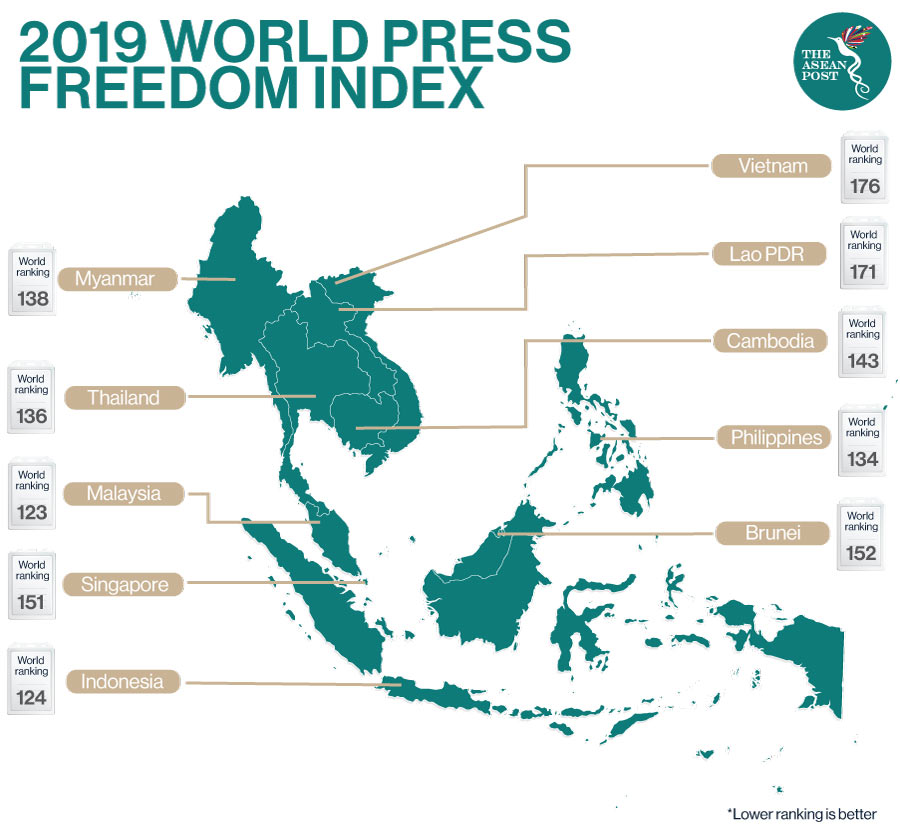The Philippines at the moment is not only confronted by the threat of the COVID-19 pandemic, rather it is also faced with a huge controversy surrounding one of the most influential media networks in the country, ABS-CBN or popularly known as the “Kapamilya” (Family) Network.
The reason for the whole controversy is due to the expiration of its congressional franchise on 4 May, 2020 followed by a “cease and desist” order (CDO) issued by the National Telecommunications Commission (NTC) on 5 May, 2020. Stunned and taken by surprise, Filipinos living in and out of the country have taken to social media to express their views on the matter. The atmosphere on social media platforms like Facebook and Twitter can be likened to a war zone. Netizens are divided and at odds with each other with some defending ABS-CBN and others who want the network to be shut down.
Apologists of the media network consisting of showbusiness and contract stars have virtually become its “frontline defenders” using hashtags like #LABANKAPAMILYA (#FIGHTFAMILY) and #WeBlockAsOne among others, while “ordinary supporters” cry out “defend press freedom”. The network’s political friends and allies in Congress like Sen. Grace Poe, Sen. Manny Pacquiao, Sen. Francis Pangilinan, Sen. Riza Hontiveros, Sen. Ralph Recto, Sen. Franklin Drilon, Sen. Sonny Angara, Sen. Miguel Zubiri, Sen. Lito Lapid, and House Speaker Allan Peter Cayetano and his allies, have petitioned the government, specifically the NTC to issue a “provisional authority” (PA) to ABS-CBN to resume operations.
The House Committee on Legislative Franchises has even served a “show cause order” against officials of the NTC directing them to explain why they should not be cited in contempt after the issuance of the CDO against ABS-CBN.
While there are many who want ABS-CBN to continue its broadcasts and remain in operations, there are also those who would like to see the network shut down because of the many alleged violations committed by it. The alleged transgressions of ABS-CBN are revealed and depicted in the “quo-warranto” case filed by Solicitor General Jose Calida Jr against the said corporation on 10 January, 2020. Calida Jr was quoted as saying in an interview that “we want to put an end to what we discovered to be highly abusive practices of ABS-CBN benefitting a greedy few at the expense of millions of its loyal subscribers. These practices have gone unnoticed or were disregarded for years.”
The alleged violations of ABS-CBN include among others: (1) bias news reporting; (2) labour-related contraventions and breaches; (3) broadcasting for a fee and operating a "pay-per-view channel in ABS-CBN TV Plus, the KBO Channel, without prior approval or permit from the NTC; (4) failing to publicly offer any of its outstanding capital stock to any securities exchange within the Philippines within five years from the start of its operations, which is an indispensable condition in its franchise; (5) issuance of Philippine Depository Receipts (PDRs) to foreigners; and (6) the scepticism and qualms orbiting around the citizenship of the media network’s chairman emeritus Eugenio Gabriel "Gabby" López III, who is also the director and treasurer of the Lopez Holding Corporation, an alleged American. The network claims he has dual-citizenship – American and Filipino.
The last two issues (5 and 6) are the most touchy and contentious because if proven true, then ABS-CBN being a mass media company had defied the constitutional ban on foreign ownership of mass media. Article XVI (General Provision) Section 11 of the constitution states that “the ownership and management of mass media shall be limited to citizens of the Philippines, or to corporations, cooperatives or associations, wholly-owned and managed by such citizens.”
The Controversial HB 6732
The already divisive and polarising controversy was heightened further by House Speaker Allan Peter Cayetano and his allies in Congress, when he introduced House Bill (HB) 6732, “An Act Granting the ABS-CBN Corporation A Franchise to Construct, Install, Operate and Maintain Radio and Television Broadcasting Stations in the Philippines, and for all other Purposes” on 13 May, 2020. In an unprecedented move, Congress was constituted as a “Committee of the Whole” to tackle the bill. It is the first time in the political history of the country, that a private bill – which does not require certification from the president – benefitting a large corporation, had passed 2nd reading in less than a day, devoid of debates, discussions, and deliberations.
In essence, the bill did not go through the rigorous process of legislation and was introduced to members of Congress at around 3:00 pm. By 6:00 pm on the same day, the bill had passed 2nd reading via “nay and aye” voting or “viva-voce”. House Speaker Cayetano also extended a PA to ABS-CBN via HB 6732 until 31 October, 2020, to supposedly give Congress plenty of time to deliberate the merits and demerits of the pending franchise application.
Even if HB 6732 is within the purview of Congress, many observers have contended that the process by which such a bill was maneuvered in Congress was unconstitutional, partial, and predisposed to favour one entity (ABS-CBN) over others. Former Supreme Court Senior Associate Justice Antonio Carpio argues that “if enacted into law, the bill (HB 6732) will deny equal protection of the law to other franchisees whose franchises will expire while Congress deliberates on their renewal.
Observers have also asserted that as a lawmaker, House Speaker Cayetano wielded and plied enormous political will and capital just to have HB 6732 passed to the point of bending and fervidly defying the constitution. Was this done to accommodate and to find ways to grant the wishes and caprices of ABS-CBN without going through the standard process of legislation?
Many observers find the entire process absurd, farcical, and ridiculous. The 1987 Constitution is clear. Article VI (Legislative Department), Section 26 (1-2) states that “(1) Every bill passed by the Congress shall embrace only one subject which shall be expressed in the title thereof. (2) No bill passed by either House shall become a law unless it has passed three readings on separate days, and printed copies thereof in its final form have been distributed to its Members three days before its passage, except when the President certifies to the necessity of its immediate enactment to meet a public calamity or emergency. Upon the last reading of a bill, no amendment thereto shall be allowed, and the vote thereon shall be taken immediately thereafter, and the yeas and nays entered in the Journal”.
Because of growing public opposition to HB 6732, the hearing of the said bill, aside from the fact that it was recalled to 2nd reading on 18 May, will now be conducted in the Committee on Franchises of Congress according to House Speaker Cayetano in his privilege speech on 19 May, 2020. He said Congress will no longer push for the provisional franchise and will go straight to the discussion of the media network’s 25-year franchise application. On the same day, the 14 Justices of the Supreme Court unanimously agreed to defer the issuance of a Temporary Restraining Order (TRO) on the cessation of operation of ABS-CBN as petitioned by the media network against the NTC. With a deprivation of a TRO and the franchise hearing back to the standard process of legislation at the committee level, it will take some time before ABS-CBN is back on air again.
In Retrospect
Let us put all these issues into perspective.
Under Philippine laws, any broadcasting network needs a congressional franchise to run television and radio stations for 25 years renewable for another 25 years. A congressional franchise is a law thus it has to go through the standard law-making process as any other bill before it can be enacted into law. Once passed in Congress, it goes to the president for signing. A franchise bill is a private bill. In as much as the granting of franchises is a discretionary power of Congress, it is also a political power that only Congress can exercise. Thus, franchise hopefuls can’t force or demand Congress to grant them a franchise if it doesn’t want to, precisely because a franchise is not a demandable right rather it is a privilege.
Similarly, the power to implement and execute laws is the domain of the executive branch of government. The NTC is part and parcel of the executive branch. It is not fitting for Congress to pressure the NTC to issue a PA to ABS-CBN without a franchise. It does not have the power as well to place the NTC in contempt because that is a violation of the principles of the separation of powers of the three branches of government. The NTC just did its job – nothing more and nothing less.
Conversely, failing to acquire or renew a franchise, is tantamount to stop operations, and that’s what happened to ABS-CBN. Retired Supreme Court Chief Justice Reynato Puno said, “we were unanimous in holding that there is a need for a franchise before the NTC can grant a provisional permit. Without a franchise, the television station concerned has to cease operation.”
Even staunch critic of the president, retired Supreme Court Senior Associate Justice Antonio Carpio said that "when the franchise expires, it is as if there is no franchise at all. So, you cannot argue that there was a prior franchise. Well, a prior franchise is prior, it's past, now there is none. And the requirement for a provisional authority is there must be a franchise.”
ABS-CBN failed to renew its franchise for the last six years or so. Its franchise application has been pending in Congress since 2014. It’s a wonder why it was not able to renew its franchise until the very last minute. Furthermore, this issue has nothing to do with press freedom rather it has to do with the “rule of law and democratic accountability”.
Freedom of the press in the Philippines is very much alive. With the voluminous media outlets accessible to all Filipinos inside and outside the country both in television and radio with live streaming platforms, including broadsheets (i.e. newspapers, tabloids, dailies and the like) with their own sets of online platforms delivering information and servicing the whole country.

It’s quite an exaggeration to say that press freedom in the county has been pilloried just because a giant media outlet has been closed due to an expired franchise. To say that issues related to the ongoing COVID-19 pandemic will not be covered extensively just because ABS-CBN was shut down is an insult to the many journalists, broadcasters, and media practitioners from other media outlets who are equally capable of delivering news and information extensively about COVID-19 or other issues.
ABS-CBN broadcasts have not actually stopped. They are still broadcasting daily through live streaming via different social media platforms, cable TV, etc., starting a day after the CDO from the NTC was issued. The only thing that was stopped was the use of the government loaned broadcast frequency (Free TV) – not ABS-CBN’s operations, ability, and capacity to broadcast. That’s the truth of the matter.
Politicians who give preferential treatment to ABS-CBN, embody the term “Politico-Media Complex” (PMC). This term is used to refer to the close-knit, very tight relationship between politics and mainstream media like ABS-CBN. It refers to the collusion between politicians and the media industry, in their attempt to manipulate rather than to inform the general public.
Both entities have the power to influence, to sway, to shape and impel the thoughts, views, perspectives, and feelings of the people. Both have the power to influence, by the authority of their offices on the part of the politicians, and the power of the press on the part of media conglomerates like ABS-CBN, to stage-manage the reality and truth as we know it.
The power of persuasion of media entities to shape the course of discussion and ergo the minds of people is virtually and practically immeasurable and inexhaustible; which is why politicians can’t afford to have adversarial, antagonistic, and unsympathetic relationships with a major media network like ABS-CBN. This is the sad reality borne and endured by the Philippines for the longest time now.
Though this fiasco promises to continue unfolding like a saga, one thing is undeniable. The dominance and hegemony of any person or entity similar to that of the Lopez family, however powerful and influential, must be subject to the bounds of the “Rule of Law” which serves the principle of equality by applying rules and laws to all citizens and institutions (public or private) –even to those who are perceived to be powerful and untouchable like the Lopez family.
With “democratic accountability”, elected government officials, and the officials of public and private service providers must be accountable and transparent in the delivery of their functions, power, authority, and business. Political will on the part of the government is important if democracy is to prosper and flourish in the Philippines. The “rule of law” is one of the building blocks of democracy just like responsible media and journalism.
While there is nothing wrong with ABS-CBN applying for a franchise, the manner in which it is done matters. ABS-CBN should apply for its franchise in the same manner that any law-abiding broadcasting company does. And yes, it’s in the purview of Congress to grant franchises, but it should be done in a fair, impartial, objective, and dispassionate way, devoid of prejudice and within the bounds of the Constitution.
Related articles:

